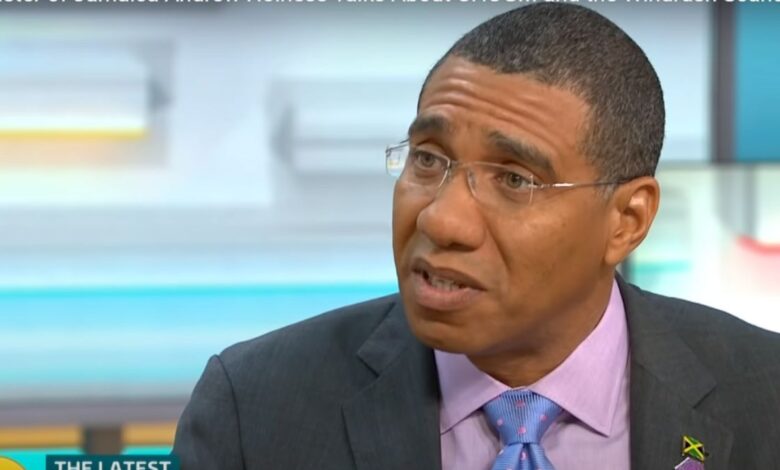
Footage Resurfaces of PM Holness Saying “views are changing” in Jamaica With Regards to Homosexuality – Watch Interview
Share
October 28, 2023
Following the Constitutional Court’s dismissal of a challenge to Jamaica’s buggery law, a video has resurfaced of Prime Minister Andrew Holness stating that the views of Jamaicans are changing regarding homosexuality.
[ads2]
On Friday, gay rights activist Maurice Tomlinson’s challenge to the buggery law in regards to consensual sex between adults was dismissed by a panel of three judges. The ruling sparked various reactions on social media, with some challenging the fairness of the law, while a majority of social media users saw it as a win for traditional Jamaican values.
A clip from a 2018 interview with Prime Minister Holness on Good Morning Britain discussing homosexuality in Jamaica has resurfaced online as Jamaicans continue to debate the future of the country’s buggery law. During the interview, Holness noted that Jamaicans are strongly against discrimination and take human rights very seriously.
He exemplified his point by highlighting that Jamaicans are evolving and views are changing in regard to the country’s stance on homosexuality.

[ads2]
“Ten years ago, there would have been a much harder line on the issue of homosexuality, particularly from a religious perspective… Over the last ten years of conversation, the society is openly discussing the issue, and views are changing. The church in Jamaica does not have a unified position,” Holness stated.
In response to the question of whether he would personally like to see homosexuality decriminalised, the prime minister said that it was his wish that the topic would be more openly discussed. Holness added that it was his job as prime minister to protect and guarantee the human rights and constitutional rights of each citizen.
Watch the interview below.
[ads2]
RELATED: Experts Reject Study that Claims 30% of Jamaicans are Gay
RELATED: Bounty Killer Blasts PM Andrew Holness for “Evil and Wicked” Decisions
RELATED: Challenge to Jamaica’s Buggery Law Dismissed by the Constitutional Court





